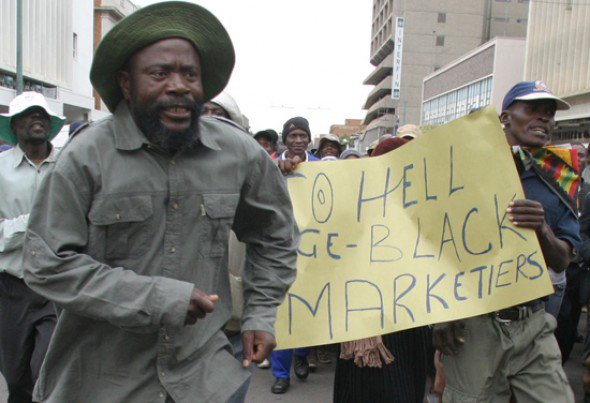- WICKNELL CHIVAYO left school at 15
- DISGRUNTLED Zimbabwe police stage uniform protest.
- MNANGAGWA wife Auxillia drops charges against nine women who boed her in Manicaland
- O.J. Simpson dies of cancer , aged 76.
- South Africa ANC is the cause of ZIMBABWE troubles claims Zimbabwe opposition politician Job Sikhala
Chinotimba questions Zanu PF regime on why it is subjecting Zimbabwean citizens to Rhodesian style forms of oppression

ZANU-PF legislator Joseph Chinotimba has challenged government to explain why it still subjected citizens to Rhodesian style forms of oppression through pegging fuel prices at far higher prices than those obtaining in neighbouring countries.
Speaking during Wednesday’s question and answer session in Parliament, the Zanu PF MP said that fuel used in Zimbabwe was procured from the same source with that of used in Zambia but was ironically charged at more exorbitant prices locally.
He demanded answers from Energy and Power Development Deputy Minister Tsitsi Muzenda.
“Madam Speaker, fuel that we use in Zimbabwe and Zambia is procured from the same place in Mozambique. It is procured from the same area. Zambian fuel passes through Zimbabwe and goes through Chirundu Border Post and when it is there, it costs 80 cents per litre. Mozambique sells fuel at 50 cents per litre. We need to understand. The Minister should explain to us. If they are failing to manage, they should give the Minister of Finance and Economic Development because they regulated this.
“It is not proper to say it is taxes because Zambia that passes through our place when transporting their fuel sells their fuel at 80 cents, yet we are paying $1.36 per litre. A liberated country like us, we should be enlightened as to why our fuel is so expensive. We are in a liberated zone and country and we also have liberated Ministers. They are not in Rhodesia. The question that was asked by the Hon. Member was that why is it that our goods in Zimbabwe are expensive? Are we in Rhodesia?”
In her response, Muzenda stuck to her explanation fuel prices were determined by taxes charged locally.
“It is true that fuel that goes to Zambia, that comes here and that which is taken to other nations is procured at the same place. Like I said, the issue of Government taxes is not for my Ministry. That is a mandate of the Ministry of Finance and Economic Development.”
Source – newzimbabwe